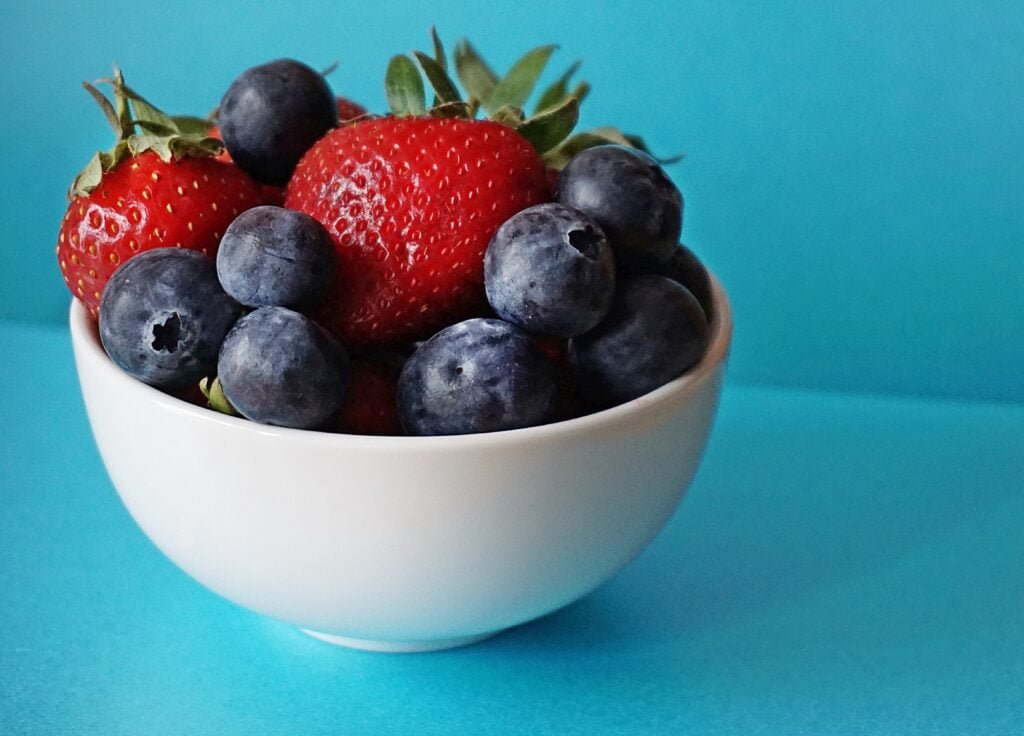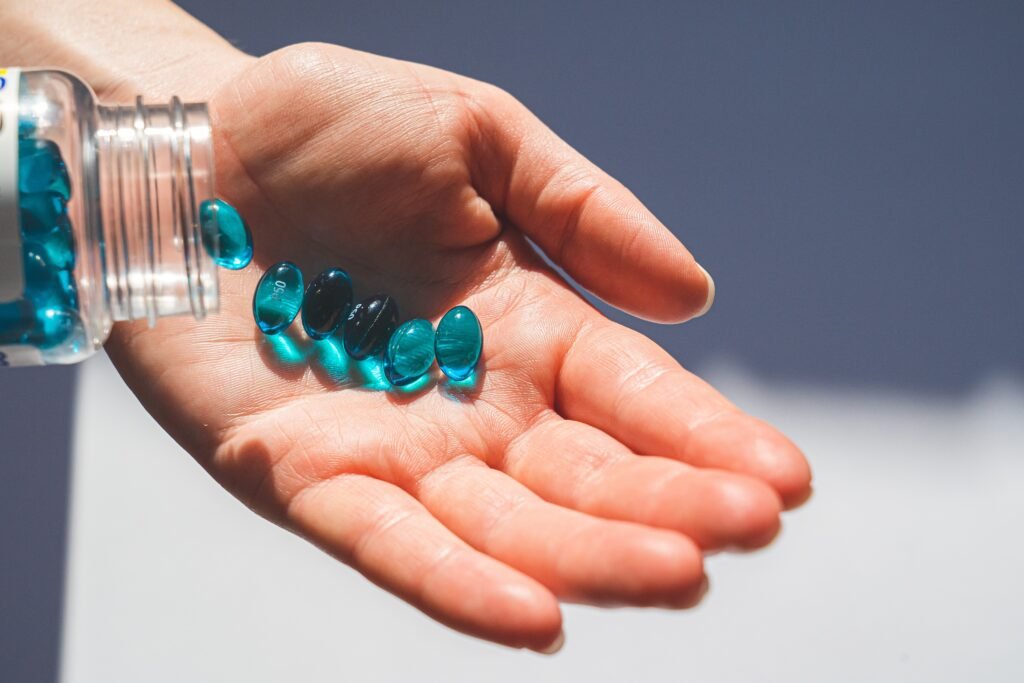Introducing our guide to Natural vs. Synthetic Anti-Aging Supplements!
In today’s rapidly evolving wellness landscape, the debate between natural and synthetic solutions has never been more relevant.
As we all strive for youthful vitality, it’s essential to make informed choices about the supplements we introduce into our bodies.
This guide dives deep into the pros, cons, and science-backed insights of both realms, offering a comprehensive comparison to empower your anti-aging journey.
Whether you’re a purist for natural remedies or curious about the innovations of synthetic supplements, we’ve got the insights you crave.
Some of the links in this post are affiliate links. This means if you click on the link and purchase the item, I will receive an affiliate commision at no extra cost to you. All opinions remain my own. Read more on our Privacy Policy page
Understanding Anti-Aging Supplements
Natural vs. Synthetic Anti-Aging Supplements
Anti-aging supplements are specially crafted products that aim to support the body’s battle against the visible signs of aging. They are formulated to provide concentrated doses of essential nutrients, antioxidants, and beneficial compounds that nourish the body from within, promoting a more youthful appearance.
The purpose of these supplements is to help individuals maintain vitality, slow down the aging process, and potentially reduce the appearance of wrinkles, fine lines, age spots, and other common signs of aging.
By supplying the body with key nutrients and antioxidants, anti-aging supplements support various bodily functions that may decline with age, such as collagen production, skin hydration, cellular repair, and overall well-being. They typically contain a combination of vitamins, minerals, herbal extracts, amino acids, and other natural or synthetic ingredients associated with potential anti-aging benefits.

| Natural Anti-Aging Supplements | Synthetic Anti-Aging Supplements |
|---|---|
| Benefits: | Benefits: |
| – Potential antioxidant properties, reducing oxidative stress. | – Precise dosage control for targeted effects. |
| – Nourishment for overall health and vitality. | – Access to specific ingredients not readily available in natural forms. |
| – Reduced risk of side effects compared to synthetic alternatives. | – Consistency in formulation and standardized quality. |
| Key Ingredients: | Key Ingredients: |
| – Coenzyme Q10 | – Retinoids |
| – Resveratrol | – Hyaluronic Acid |
| – Collagen | – Peptides |
| Scientific Evidence: | Scientific Evidence: |
| – Studies suggest the effectiveness of natural ingredients in improving skin health and reducing signs of aging. | – Scientific research supports the effectiveness of synthetic supplements in addressing various signs of aging. |
| – Further research is needed to fully understand the long-term benefits. | – Care should be taken to consider individual health conditions and potential side effects. |
| Potential Drawbacks: | Potential Drawbacks: |
| – Lack of regulation in the natural supplement market. | – Higher risk of side effects. |
| – Possible interactions and side effects. | – Possible lack of natural synergy found in whole foods or botanical sources. |
| – Quality control issues. | – Quality control and purity concerns. |
What Factors Influence Effectiveness: Bioavailability, Dosage, and Formulation?
- Bioavailability refers to the body’s ability to absorb and utilize nutrients from the supplement.
- The dosage is important, as the right amount of each ingredient is necessary for optimal results.
- Formulation plays a significant role in ensuring effective delivery and maximizing benefits.
What You Need to Know About Anti-Aging Supplements
Natural Anti-Aging Supplements
Natural vs. Synthetic Anti-Aging Supplements

Natural anti-aging supplements harness the power of ingredients derived from plants, herbs, and other natural sources. These supplements take a holistic approach to combat the signs of aging and promote overall well-being. Examples of natural supplements include botanical extracts, herbal remedies, and traditional ingredients known for their rejuvenating properties.
BOTANICAL EXTRACTS
Natural vs. Synthetic Anti-Aging Supplements
Botanical Extracts for Anti-Aging Benefits
The natural world holds a treasure trove of ingredients that can help combat the visible signs of aging. Botanical extracts, in particular, have been revered for centuries for their rejuvenating properties. Let’s delve into some of these botanical wonders that promise to infuse vitality into aging skin:
- Green Tea Extract: Packed with polyphenols, green tea extract combats oxidative stress, which can accelerate skin aging. Its anti-inflammatory properties also help soothe irritated skin.
- Pomegranate Extract: This antioxidant powerhouse aids in cellular regeneration and protects the skin from the harmful effects of UV radiation.
- Grape Seed Extract: Known for its high content of proanthocyanidins, it protects the skin from premature aging by neutralizing free radicals and supporting collagen production.
- Rosehip Oil: Rich in vitamins A and C, it promotes skin regeneration, reduces wrinkles, and keeps the skin’s elasticity intact.
- Calendula Extract: Celebrated for its ability to heal the skin, calendula improves skin firmness and hydration.
- Lavender Extract: Apart from its calming aroma, lavender promotes skin renewal and combats wrinkles and fine lines.
- Chamomile Extract: Its anti-inflammatory and antioxidant properties make it ideal for soothing and revitalizing aging skin.
- Gotu Kola Extract: Known for boosting collagen production and improving skin elasticity, this extract is a staple in anti-aging formulations.
- Aloe Vera Extract: A hydration hero, aloe vera penetrates the skin deeply, locking in moisture, and aiding in wrinkle reduction.
- Ginseng Extract: Stimulates skin’s metabolism and promotes a youthful radiance by improving blood circulation.
Integrating these botanical extracts into your skincare regimen can provide a natural, effective defense against the signs of aging. Their healing and protective properties promise a radiant, youthful complexion, tapping into nature’s own arsenal of anti-aging remedies.
Boost your vitality and energy with Active Ginseng Korean Red Panax Ginseng, an all-natural liquid solution offering 2X absorption and the benefits of natural ginsenosides.

HERBAL REMEDIES
Natural vs. Synthetic Anti-Aging Supplements
Herbal Remedies for Anti-Aging Benefits:
- Ginkgo Biloba: Boosts circulation, aids in skin regeneration, and provides antioxidant protection against free radicals.
- Turmeric (Curcumin): Offers potent anti-inflammatory effects and enhances skin’s radiance.
- Aloe Vera: Hydrates skin, promotes collagen production, and reduces the appearance of fine lines.
- Lavender: Assists in skin rejuvenation and counters the negative effects of stress on skin.
- Green Tea Extract: Rich in polyphenols that reduce signs of aging by fighting oxidative stress.
- Ginseng: Promotes skin vitality and boosts collagen production.
- Gotu Kola (Centella Asiatica): Stimulates collagen synthesis and improves skin elasticity.
- Rosemary: Protects skin cells from sun damage and tightens sagging skin.
- Chamomile: Soothes skin and assists in skin regeneration.
- Licorice Root: Brightens skin and evens out skin tone.
- Hibiscus: Known as the “Botox plant” for its ability to lift and firm skin.
- Ashwagandha: Reduces cortisol levels, which can lead to premature aging, and enhances skin’s overall health.
Read our article: UNIQUE NATURAL SECRETS FOR ANTI-AGING
TRADITIONAL INGREDIENTS
Natural vs. Synthetic Anti-Aging Supplements
Traditional Ingredients for Anti-Aging Benefits:
- Honey: Naturally moisturizes and has antibacterial properties, promoting a clear complexion and slowing down aging.
- Olive Oil: Packed with antioxidants, it hydrates the skin and restores skin smoothness.
- Amla (Indian Gooseberry): A traditional Ayurvedic ingredient, rich in vitamin C, that rejuvenates skin and reduces pigmentation.
- Sandalwood: Soothes the skin, fades scars, and tightens for a youthful appearance.
- Milk and Yogurt: Naturally exfoliates and hydrates the skin due to the lactic acid content.
- Rice Water: Asian beauty secret that brightens skin and promotes collagen production.
- Sea Salt: Natural exfoliant that removes dead skin cells and promotes skin renewal.
- Rose Water: Tones, calms, and revitalizes skin for a youthful glow.
- Saffron: Known for its skin-lightening properties and ability to improve blood circulation.
- Almond Oil: Deeply moisturizes and reduces the appearance of dark circles and fine lines.
- Neem: Offers antifungal and antibacterial properties, keeping skin infections at bay and providing a clear complexion.
- Tamanu Oil: Promotes skin regeneration and is known to treat scars and fine lines.
>>> Live Conscious Collagen Peptides Powder – Hair, Skin, Nail, and Joint Support –

Essentail Oils
Natural vs. Synthetic Anti-Aging Supplements
- Lavender Oil: Promotes skin healing and can help reduce fine lines and wrinkles.
- Frankincense Oil: Offers astringent properties which can be beneficial for tightening the skin.
- Rosehip Oil: Rich in fatty acids and vitamin A, it’s known to moisturize and brighten the skin, promoting skin regeneration.
- Pomegranate Seed Oil: Contains potent antioxidants that fight free radicals and promote collagen production.
- Carrot Seed Oil: High in antioxidants, it rejuvenates dull skin and can protect against wrinkles.
- Geranium Oil: Boosts skin elasticity and regulates oil production, giving a balanced complexion.
- Myrrh Oil: Known for its rejuvenating properties, it helps in reducing skin sagging and fine lines.
- Neroli Oil: Stimulates cell renewal and improves skin elasticity.
- Patchouli Oil: Promotes cell regeneration and reduces the appearance of scars and fine lines.
- Sandalwood Oil: Softens dry skin and can help reduce the appearance of skin imperfections.
- Ylang-Ylang Oil: Balances oil production and revitalizes aging skin.
- Clary Sage Oil: Reduces inflammation and promotes skin regeneration.
>>> Handcraft Blends Essentail Oils. Check in STORE
Nutrient – Rich Foods
Natural vs. Synthetic Anti-Aging Supplements
Nutrient-Rich Foods for Anti-Aging Benefits:
- Berries (Blueberries, Strawberries, Raspberries): Packed with antioxidants, which protect the skin from damage by free radicals.
- Salmon: High in omega-3 fatty acids which can help keep the skin moisturized and reduce inflammation.
- Spinach and other Leafy Greens: Rich in vitamins A, C, and E, as well as iron and other minerals that boost collagen production.
- Nuts (Almonds, Walnuts): Source of essential fatty acids and vitamin E which nourish the skin and protect it from sun damage.
- Avocado: Contains healthy fats and vitamins E and C, which promote skin hydration and elasticity.
- Tomatoes: Rich in lycopene, an antioxidant that offers sun protection and promotes skin health.
- Sweet Potatoes: High in beta-carotene, which acts as a natural sunblock and protects the skin from sun damage.
- Papaya: Contains vitamins A, C, E, and K, and antioxidants which improve skin elasticity and minimize the appearance of fine lines and wrinkles.
- Green Tea: Loaded with polyphenols, which can fight damage caused by free radicals.
- Red Bell Peppers: Rich in antioxidants, including vitamin C, which helps collagen production.
- Broccoli: Contains vitamins C and E, and antioxidants that protect the skin against damage.
- Olive Oil: Full of antioxidants and healthy fats that fight aging, reduce inflammation, and moisturize the skin.
- Dark Chocolate: Contains flavanols which provide antioxidant properties, improving skin texture and hydration.
- Kiwi: High in vitamin C, which promotes collagen production and reduces skin damage.
- Bone Broth: Rich in collagen, which helps improve skin elasticity and reduce the appearance of wrinkles.
Including these nutrient-rich foods in your diet can enhance skin health, promote its youthful appearance, and offer anti-aging benefits.
Benefits of Natural Supplements
- Antioxidant Boost: Natural supplements are rich in antioxidants, which help protect the body against harmful free radicals. Antioxidants neutralize free radicals, reducing oxidative stress and potentially slowing down the aging process.
- Nourishment for Vitality: Natural supplements provide a wide range of vitamins, minerals, and nutrients that support overall health. These essential components promote proper cellular function, enhance energy levels, and support various bodily systems.
- Gentle on the Body: Compared to synthetic alternatives, natural supplements typically carry a lower risk of side effects. Being derived from natural sources, they are generally well-tolerated by the body and less likely to cause unwanted reactions.
>>> Handcraft Lavender Essential Oil – 100% Pure and Natural


Key Natural Ingredients for Anti-Aging
- Coenzyme Q10: This natural antioxidant plays a role in cellular energy production and has shown potential in reducing wrinkles and improving skin elasticity.
- Resveratrol: Found in certain fruits and red wine, resveratrol possesses antioxidant and anti-inflammatory properties, which may contribute to its anti-aging effects.
- Collagen: Vital for skin structure and elasticity, collagen is a protein commonly used in natural supplements to promote healthy skin and reduce the appearance of wrinkles.

Scientific Evidence Supporting the Effectiveness of Natural Supplements
Scientific research has explored the effectiveness of various natural anti-aging supplements. While results can vary, studies suggest that natural ingredients like coenzyme Q10, resveratrol, and collagen may have positive effects on skin health, wrinkle reduction, and overall aging. However, further research is needed to fully understand their efficacy and long-term benefits.
Synthetic Anti-Aging Supplements
Natural vs. Synthetic Anti-Aging Supplements

Synthetic anti-aging supplements are created through precise formulations in laboratories, targeting specific anti-aging concerns. These innovative solutions offer controlled dosage and access to specific ingredients. Examples of synthetic supplements include retinoids, hyaluronic acid formulations, and peptide-based products.
- RETINOIDS, including retinol and retinoic acid, known for their skin-renewing properties.
- HYALURONIC ACID, a compound that helps retain skin moisture and promote plumpness.
Recommended:>>> Hyaluronic Acid Supplements (buy on amazon)

- PEPTIDES, which can stimulate collagen production and improve skin elasticity.
- SYNTHETIC ANTIOXIDANTS like alpha-lipoic acid and idebenone.
- VITAMIN C derivatives such as ascorbyl palmitate and magnesium ascorbyl phosphate.
Benefits of Synthetic Supplements
- Precise Dosage Control: Synthetic supplements allow for accurate and controlled dosage, ensuring consistent delivery of the desired amount of active ingredients.
- Availability of Specific Ingredients: Synthetic supplements provide access to ingredients that may not be readily available in natural forms, enabling the formulation of products with targeted anti-aging properties.
- Consistency in Formulation: Synthetic supplements are manufactured with high precision, ensuring consistent formulation and standardized quality in each dose.
RECOMMENDED! >>> TRU NIAGEN – Patented Nicotinamide Riboside NAD+ Supplement


Key Synthetic Ingredients for Anti-Aging
- Retinoids: Synthetic forms of vitamin A, retinoids offer powerful anti-aging effects, improving skin texture, reducing wrinkles, and promoting cell turnover.
- Hyaluronic Acid: Synthetic hyaluronic acid is widely used in anti-aging products for its ability to hydrate and plump the skin, diminishing the appearance of fine lines and wrinkles.
- Peptides: Synthetic peptides, short chains of amino acids, stimulate collagen production and improve skin elasticity, addressing signs of aging.
Scientific Evidence Supporting the Effectiveness of Synthetic Supplements
Scientific studies provide evidence for the effectiveness of synthetic anti-aging supplements. Research has demonstrated the positive impact of retinoids in reducing wrinkles and enhancing skin texture. Similarly, hyaluronic acid and peptides have been extensively studied, showcasing their ability to improve skin hydration, firmness, and elasticity.
While synthetic supplements offer targeted benefits, it’s important to note that they may carry a higher risk of potential side effects compared to natural alternatives. Consultation with a healthcare professional is crucial before incorporating synthetic anti-aging supplements, especially if you have specific health conditions or concerns.
Potential Drawbacks of Natural Supplements
- Lack of Regulation in the Natural Supplement Market:
- The natural supplement industry is less regulated compared to the pharmaceutical industry, leading to inconsistencies in quality, purity, and efficacy.
- Choosing reputable brands and consulting healthcare professionals can help mitigate this concern.
- Possible Interactions and Side Effects:
- Natural supplements can still interact with medications or cause side effects in certain individuals.
- It is important to be aware of any potential interactions and consult with a healthcare professional before starting a new supplement.
- Quality Control Issues:
- Ensuring the quality and purity of natural supplements can be challenging, as there is a lack of standardized regulations.
- Selecting trusted brands and looking for third-party certifications can help ensure product quality.
Potential Drawbacks of Synthetic Supplements
- Higher Risk of Side Effects:
- Synthetic supplements, although backed by scientific evidence, can carry a higher risk of potential side effects compared to natural alternatives.
- Consulting with healthcare professionals is crucial before incorporating synthetic supplements, especially for individuals with specific health conditions.
- Possible Lack of Natural Synergy:
- Synthetic supplements may not possess the natural synergy found in whole food or botanical sources.
- Some argue that the combined effects of various natural compounds in whole foods provide unique benefits that synthetic supplements may not fully replicate.
- Quality Control and Purity Concerns:
- Similar to natural supplements, quality control and purity issues can arise in synthetic supplement manufacturing.
- Choosing reputable brands that adhere to strict quality standards can help mitigate this concern.

Conclusion – Natural vs. Synthetic Anti-Aging Supplements
Determining the recommended supplements for anti-aging depends on your individual needs, goals, and health conditions. It’s important to consult with healthcare professionals who can provide personalized recommendations based on your specific circumstances. They will consider factors such as your health profile, medications, and desired outcomes to guide you towards the most suitable supplements.
Healthcare professionals may suggest natural supplements due to their potential antioxidant properties, nourishing benefits, and reduced risk of side effects. Key natural ingredients like coenzyme Q10, resveratrol, and collagen have shown promise in supporting anti-aging goals.
Alternatively, synthetic supplements offer precise dosage control, access to specific ingredients, and consistent formulation. Synthetic ingredients such as retinoids, hyaluronic acid, and peptides have been extensively studied for their anti-aging effects.
Take control of your anti-aging journey and make an informed choice today!
Start by scheduling a consultation with a healthcare professional to discuss your specific needs, goals, and health conditions. They will provide personalized recommendations based on their expertise and guide you towards the most suitable supplements for your anti-aging goals.

- Mukherjee S, et al. Retinoids in the treatment of skin aging: an overview of clinical efficacy and safety. Clin Interv Aging. 2006;1(4):327-348.
- Papakonstantinou E, et al. Hyaluronic acid: A key molecule in skin aging. Dermatoendocrinol. 2012;4(3):253-258.
- Varani J, et al. Decreased collagen production in chronologically aged skin: roles of age-dependent alteration in fibroblast function and defective mechanical stimulation. Am J Pathol. 2006;168(6):1861-1868.






